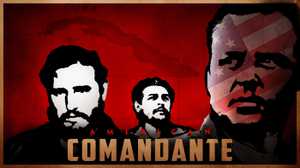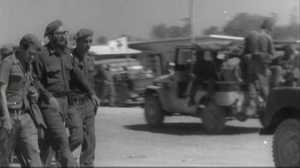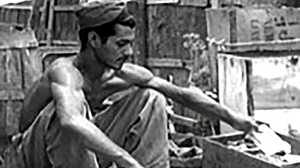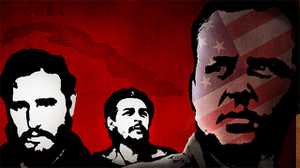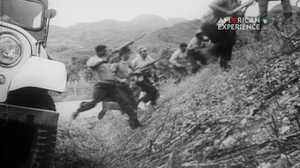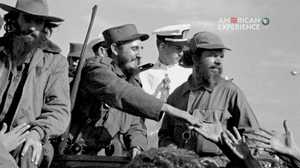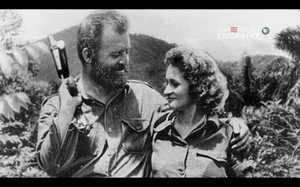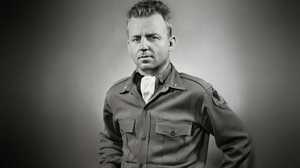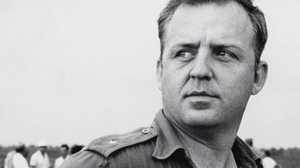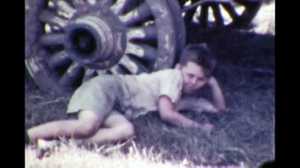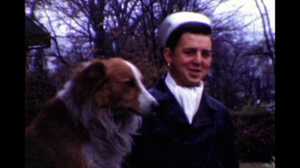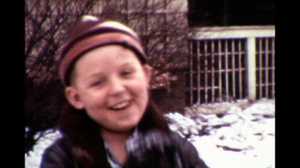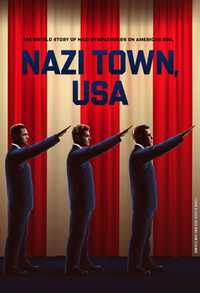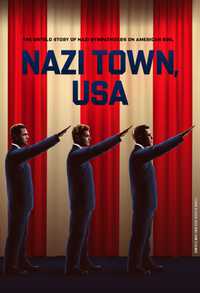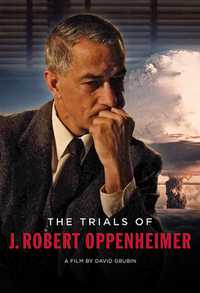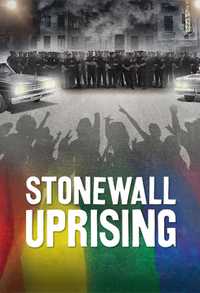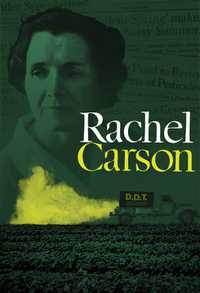Narrator: The execution set for the evening of March 11, 1961, was in many ways, unremarkable. More than 200 had taken place at Havana's La Cabaña Prison in the previous two years. Waiting in his cell, the prisoner could hear the approaching car that would take him to his death. William Morgan had cut a dashing figure fighting in Fidel Castro's revolution. Featured in publications around the world, the mysterious Americano transformed himself into a celebrity…The American Comandante.
Clete Roberts (archival): How does it happen that you haven't offered a diary for sale?
William Morgan (archival): Uh, I don't believe that you should cash in on your ideals.
David Grann, Writer: Morgan is a classic example of the American myth of reinvention that you can shed your history, and reinvent yourself and become somebody.
Olga Rodríguez Goodwin, William Morgan's Widow: I found in him what I had looked for in life. And I think he also found it in me. We loved each other intensely. I cannot erase his memory from my heart and my respect for him.
Narrator: "Dear Mom, I want you to know that I have been prepared for this as long as I have been in prison. For after all, it is not when a man dies but how…"
Michael Sallah, Writer: From the time he gets into the death car to the time the death car delivers him to the dry mote, he is praying. He refuses to be blindfolded, and he refuses to be handcuffed. After the priest starts to leave, he says, "Father, wait." And he takes a rosary off and gives the rosary to the priest. And at that point in time, he steps back.
Narrator: In 1942, the circus came to Toledo, Ohio. Alexander Morgan captured the excitement in a short film, with his son as protagonist. The spectacle must have triggered what Loretta Morgan called her son's "vivid imagination." A year later, 14-year-old Billy ran off to join the circus.
David Grann, Writer: He was someone who, from when he was a very little kid, always dreamed of becoming somebody. He had these almost interior fictions that he wanted to kind of will into reality.
Narrator: His father found him in Chicago and brought him home to Toledo.
Michael Sallah, Writer: He was not like most kids. He was rambunctious. He was impetuous. You couldn't tether him. You couldn't tie him. William Morgan grew up in a family where there was discipline, and where there was expectations. His father was an engineer, master's degree. His mother was a bright lady.
Narrator: Known as "Miss Cathedral," for her good works at the local Catholic church, Loretta Morgan was more forgiving of Billy, waiting patiently for him to straighten out.
Michael Sallah, Writer: Every time he was in trouble, she was there for him. Even when—times when the father, Alexander, would want to impose harsh discipline, she would intercede.
David Grann, Writer: He was raised a Catholic boy. He was born with these values, but he was always at war to some degree with these values. But they were always there.
Narrator: By the time William entered high school, he had been in trouble with the law and thrown out of two schools. He quit in his first year and enrolled in the merchant marine.
Aran Shetterly, Writer: He gets mixed up with thugs and hoodlums on the Toledo docks in the waterfront. Toledo had a very developed underworld of people who were connected to the mafia, of people who were gangsters. And he touches that world.
Narrator: In 1946, on his 18th birthday, Morgan joined the Army and shipped off to occupied Japan.
Aran Shetterly, Writer: He meets a Japanese woman, gets involved with her, goes AWOL, gets caught, gets put in the brigg, and then does something that most of the soldiers didn't do, which was overpowered a guard and escape from the brigg.
Narrator: Morgan was dishonorably discharged and sentenced to five years of hard labor. He served three years in a federal prison, then returned home.
David Grann, Writer: His family had quintessential Midwestern patriotic values. And the idea that he would be dishonorably discharged produces a deep shame in his family, and a deep shame that he feels as well.
Narrator: "I sincerely want him to be a boy that I can justify being proud of," Loretta Morgan said, "Not one to hang my head in shame for having given him birth." As an ex-con and army deserter, Morgan had few opportunities to remake his life in Toledo.
Michael Sallah, Writer: The only place he could really get a job was with the mob. He was a driver, a runner, a lookout for their gambling houses. He was tough, he was a pretty good shot, and they needed people like him, they needed street soldiers. So Billy Morgan could fill the bill.
Narrator: Once again he left town and joined a circus. He became a fire eater, married a snake charmer and with her had two children. In those days, Morgan later said, "I was a nobody." In 1954 at age 26, he settled down in Miami where he found work as a clown and bouncer at a famous nightclub. It was there that William Morgan first heard of a revolt on the island of Cuba. Two years earlier General Fulgencio Batista had seized power on the eve of a presidential election. Miami became the center of opposition to Batista, beginning to crystalize around a charismatic young lawyer.
Michael Sallah, Writer: Fidel Castro is leading a drive to raise money for a revolution. Batista is the target. They want him out. They want a free Cuba. All of the sudden, William Morgan gets captivated by these young men who are risking their life. And they're telling William these great stories of going back and fighting this revolution. Then he gets an offer to help smuggle arms into Cuba. Many of these guns were army surplus, they were snatched up by the mob and they were sent down to Cuba.
Aran Shetterly, Writer: He really wanted to be a soldier. He was 30 years old and probably wasn't going to get another chance. And certainly not with the U.S. Army. And so I think he saw this as an opportunity to go fight -- to become part of something and attach himself to something that seemed important and seemed exciting.
Narrator: Morgan's journey to join the Cuban Revolution began with a lie -- told to a group of young exiles in Miami.
Michael Sallah, Writer: He tells them that he had a friend from the Army that he had fought in the Korean War with. Of course, Morgan was never in the Korean War. This man had saved Morgan's life and during a trip to Cuba, when this man was smuggling guns to Cuba, he was caught. And he was killed by Batista's guards. And he was fed to the sharks. And Morgan was going to avenge his friend, Jack Turner's life.
Narrator: In late December, Morgan abandoned his wife and children and headed to Havana. Fidel Castro was now leading the Revolution from the Sierra Maestra Mountains in eastern Cuba. Morgan wanted to fight with Castro, but his camp was too far, and the roads were crawling with Batista's soldiers. His contact in Cuba suggested an alternative. Halfway between the city of Havana and Castro's Sierra Maestra, in a mountain range called the Escambray, a new guerrilla group was coming together. William Morgan arrived at their camp in January 1958.
Evelio Martínez, Second Front of the Escambray: Three in the afternoon. That's when he arrived, this American, who couldn't speak Spanish at all.
Roger Redondo, Second Front of the Escambray: He was fat. Not at all the William that he later became. He weighed more than 200 pounds. No one thought he would last with us. Everyone wanted him gone, and they made his life difficult.
Michael Sallah, Writer: They were gonna kind of torture him for the first several days of his entre there. And he gets in there, and he starts running up and down the hills. He's got sores all over his body. He's huffing and puffing. He's frustrated, he's mad.
Narrator: Morgan was taken to see Eloy Gutierrez Menoyo, a 23-year-old former student leader, who now commanded the Escambray Second Front.
Aran Shetterly, Writer: Fidel Castro and his 26th of July movement wasn't the only group that had risen up against Batista. There were other groups. And Menoyo's Second National Front of the Escambray was one of the other really important groups.
Narrator: "Fighting requires more than firing a rifle," Morgan told Menoyo. He offered to teach the inexperienced guerrillas what he had learned in the Army.
Roger Redondo, Second Front of the Escambray: He built this scaffolding, same training he received in the American Army. And he started teaching people martial arts and how to throw knives. He had an incredible ability with knives. He would throw them and hit a little line he'd drawn on a tree. Later I found out he learned it at the circus.
Narrator: In the mountains, Morgan found his place. He was no longer a mobster, an ex-con, a circus act.
David Grann, Writer: He wants to get away from his past. And he kind of, through demonstration and through proof and loyalty, gets accepted. They don't know who he is and in the end, they're like, it doesn't really matter. He's one of us. He's fighting for us, he's willing to bleed for us, he's willing to die for us.
Narrator: Morgan's life as a guerrilla fighter began inauspiciously with a misunderstanding.
Michael Sallah, Writer: Menoyo gives orders not to fire on the six soldiers that they see coming up the side of a gulley. And he doesn't understand the order. So he fires on them.
Narrator: Morgan's shot revealed the group's position. Batista's army gave chase, forcing the Second Front into a long trek across the rugged mountain range.
Dr. Armando Fleites, Second Front of the Escambray: Men bond in combat; going hungry, facing danger. There was a certain affinity among all of us, including William Morgan, with a tremendous spirit—a spirit of sacrifice.
Narrator: A few days into the march, Morgan's time as a fighter almost came to an end, when 200 soldiers caught up with the guerrillas.
David Grann, Writer: They suddenly realize that they're in deep trouble. Morgan helps come up with some of the tactics. He helps them form into a U-formation to hide behind a ridge. Then Morgan, at one point, kind of stands up and they kind of see this crazy white dude with blue eyes and scraggly hair running forward. And it really bolsters them. And in that moment, they are able to prevail.
Dr. Armando Fleites, Second Front of the Escambray: It was the first time the peasants saw that we could beat the Army, and that gave us an extraordinary prestige. I consider it one of the decisive battles of the Escambray War. Had we lost, the Second Front would not have survived.
David Grann, Writer: It was a critical moment, for Morgan and being accepted within the group and really slowly, gradually, emerging as a leader.
Narrator: July 1958: "Dear Mom, This will be the first letter that I have written to you since I left in December. I know you neither approve nor understand why I am here, even though you are the one person in the world who understands me…"
Loretta Morgan first learned of her son's Cuban exploits in a New York Times story about the Second Front and the mysterious American fighting in their midst.
"…The whole point of this letter is to let you know why I fight here. I am here with men and boys who fight for a freedom for their country that we as Americans take for granted."
Michael Sallah, Writer: He witnesses a series of atrocities that really moved him. They get called to this small town. By then Batista's soldiers had already been there.
Evelio Martínez, Second Front of the Escambray: Batista's soldiers had come up the river to these houses. They assassinated the women. They cut the lips off the face of one of them. And they burned more than 11 houses.
Michael Sallah, Writer: At the end of the day, Morgan had seen something that really cut him to his core. And he realized, for the first time, this isn't about me. This is about them.
Narrator: "I do not expect you to approve but I believe you understand. And if it should happen that I die here, you will know it was not for foolish fancy, or as Dad would say, 'a pipe dream.'"
David Grann, Writer: I do think that is, without question, a beginning of a profound change in Morgan. I don't think it happens overnight. It doesn't happen in a week. But you could see a steady progression and change, a deepening of his character.
Olga Rodríguez Goodwin, William Morgan's Widow: I saw that all the peasants loved and respected him. And that filled my mind and my heart. In the mountains, I saw a wonderful man standing in front of me.
Narrator: Olga Rodriguez fell in love with William Morgan in the summer of 1958. A student activist from the nearby city of Santa Clara, she had fled to the Escambray just ahead of Batista's secret police.
Olga Rodríguez Goodwin, William Morgan's Widow: They were going to kill me, as they had so many others. We were students. We had to defend our country. We would go out on the streets to protest, yelling, "We don't want dictators. We don't want Batista. We want the Constitution."
Narrator: Rodriguez was the first woman to join the Second Front guerrillas. The second of six children, she had grown up in a family poor enough to know hunger.
Olga Rodríguez Goodwin, William Morgan's Widow: At our house, it was a plate of cornmeal for the entire day because my parents made so little money. From the time I was little, I helped my mother. I used to clean a house for seven pesos a month after school.
Michael Sallah, Writer: She is the one that brings him that message of social justice, of making a difference in the lives of poverty-stricken Cubans. And he hears it in a way that he hadn't heard it yet.
Narrator: By the fall of 1958, the fighting in the Escambray was favoring the rebels. In one year, the Second Front had grown from a handful of guerrillas to an army of more than 500 men and women, that controlled one-third of Cuba's largest province, Las Villas. William Morgan, now a comandante, and Menoyo's second-in-command, had not lost a single battle.
Dr. Armando Fleites, Second Front of the Escambray: He had charisma as a leader, and he was exceptionally brave. He commanded a guerrilla group he called, "The Little Tigers," and the tigritos adored Morgan.
Lillian Guerra, Historian: They have a tremendous degree of confidence in themselves. They know how to engage in encounters with the military. And they know how to win. They do become extraordinarily successful against all odds by the end of this.
Evelio Martínez, Second Front of the Escambray: In every battle I was with him, and there were many, I always had the image of a man of great discipline, who had to be obeyed.
Narrator: To the east, Fidel Castro's 26th of July guerrillas had secured their own territory. Castro asked Che Guevara, an Argentinian who was his second-in-command, to extend the war west, and bring the Second Front under Castro's control.
Michael Sallah, Writer: They didn't really need the 26th of July's help in the Escambray. They were fighting their own war, and they were doing a pretty good job of it. But here comes Che. It's October 1958. And Che wants to take over.
Narrator: As he entered the territory of the Second Front, Che Guevara was captured and brought to their headquarters at gunpoint. It would take weeks for Eloy Gutiérrez Menoyo and Che Guevara to agree to an operational pact. Guevara would take Santa Clara and Morgan would take Cienfuegos. But a rift now existed between Castro and those loyal to Menoyo, including William Morgan.
Keith Leslie (archival): The time is now 2:30 o'clock, Wednesday morning, the place is the city square of Cienfuegos. Fidel Castro has been speaking for over an hour. He will probably speak for another hour, or perhaps even more…
Narrator: On January 2, 1959, Fidel Castro's victory caravan began to make its way across Cuba. Batista had fled two days earlier. And by the time Castro arrived in Cienfuegos, Morgan and his men had taken the city.
Keith Leslie (archival): I heard you say a moment ago that you are going to feed the entire city of Cienfuegos. What's the story on that?
William Morgan (archival): Well, we're feeding the entire city of Cienfuegos, there isn't any food supplies. They're just starting to move because of the general strike, and because of the bad condition of the roads after we blew up the bridges.
Keith Leslie (archival): Bill, you've only been married for about a month now. How did you happen to meet your wife?
William Morgan (archival): Well, she came up to the mountains running with the secret police behind her. She was working in the revolutionary movement, and put a couple of bombs down in the city and the secret police wanted to take off her head. So she came up here and worked as my secretary, and then from there, why, we got married.
Michael Sallah, Writer: Olga was actually getting upset because he wasn't spending any time with her. But he couldn't. He took a very real serious mission when he took on Cienfuegos to keep order. And he took great pride in that.
Narrator: Morgan had not slept for days, and after a year in the mountains, he was looking forward, he said, "to a shave and a long sleep."
David Grann, Writer: It's a very American notion that you can shed your history and reinvent yourself. When he comes down from the mountains and people are touching him, he's astonished. He feels this enormous emotion. They don't care about who he was. They don't care who he was back when he was running with the mob in Toledo. You know, none of that matters anymore.
Michael Sallah, Writer: He gets a call from this hometown paper, The Toledo Blade. And that's probably, for him, that's the call he'd been waiting for. Because now he has a chance to show his parents, "I made it. Look what I am right now."
Narrator: Fidel Castro entered Havana on January 8, 1959 to thunderous acclaim. He had promised a return to democracy, free elections and respect for individual freedoms.
Reporter (archival): Dr. Castro, it is reported that you feel that your role in the Revolution is about over and that you plan perhaps this return to civilian life. Is this true, and if not, how soon do you think it will be before you can do that?
Fidel Castro (archival): If for my country this is necessary, I renounce to any position. I would gladly renounce to any position, because sincerely, I don't ambition power, money, nothing -- only to serve my country.
Narrator: Behind the scenes, Castro worked to consolidate power around his closest confidantes including his brother Raul and the Marxist Che Guevara. Menoyo and his Second Front were excluded from important government positions.
Aran Shetterly, Writer: They had done their job. They were successful, but certainly they weren't being invited to be part of what was coming next, they were being left out.
Narrator: From Cienfuegos, Morgan watched tensions rise. As soon as he arrived at his suite in the Capri Hotel in Havana, he was drawn into the fray.
William Morgan (archival): In March, an American, by the name of Frank Nelson, came here and got in contact with me. And he said, "I have some people who want to give you a million dollars." And I'll be very blunt about it, I said, "Fine, but who do you want me to kill?"
David Grann, Writer: Frank Nelson, in a way, is a ghost from his past because he's connected to some of the mob figures who knew "good ol' Billy Morgan." That's how they called him. And the mob, you have to understand, was very upset with Castro, because he was threatening to close all their casinos and shut down their playpen.
Michael Sallah, Writer: Nelson delivers a message to Morgan, and that message is, would you be willing to execute, kill, assassinate Fidel Castro?
Narrator: The idea originated with the Dominican Republic's president, Rafael Trujillo. Known as one of Latin America's most brutal dictators, Trujillo had given refuge to Batista after his flight from Havana. Morgan immediately told the Second Front commanding officer, Eloy Gutierrez Menoyo.
David Grann, Writer: Morgan saw the second front, himself, Menoyo, as a counterbalance to Che, and that they could play that important role. And I don't think, even though they were signs they were being marginalized, they hadn't lost complete faith that that would be the case.
Narrator: Morgan and Menoyo went to see Fidel.
Roger Redondo, Second Front of the Escambray: Fidel was immediately interested. One million dollars is a lot of money. In 1959, $1 milllion was like 20 million today. So, who's behind all of this?
Narrator: In late May, on Castro's orders, Morgan flew secretly to Miami.
Michael Sallah, Writer: The first meeting that we know that's documented in FBI records is in the Dupont Plaza Hotel at least two months after he meets with Fidel Castro. In the meeting is the Dominican Consul in Miami, an old mafia chieftain from Cleveland, and the former police chief in Havana. And they start to talk. And now this plan of just an assassination attempt is now growing into a takeover of the country -- a coup.
Narrator: The plan had three parts: an uprising by Batista's supporters in Havana; an insurrection in the town of Trinidad led by Menoyo and Morgan; and an invasion force dispatched by Trujillo from the Dominican Republic. When Morgan informed him of the plot, Castro decided to set a trap: to crush the Batista loyalists in Cuba, and teach Trujillo a lesson.
Aran Shetterly, Writer: Fidel Castro said to Morgan, "Draw it out. Let's see everyone who could be involved or might get involved in this."
Michael Sallah, Writer: Morgan and Olga and their entourage along with key people that Fidel plants with them, are now moving into this opulent home -- million dollar home -- in Havana. He's gonna have microphones in the lamps. He's going to have reel-to-reel tape recorders going, so that not one word uttered in any room will not be tape-recorded. And then Morgan has to now bring in the Batistianos -- those that were supporting Batista. And they have to play everyone, as if they're along with this plan.
Narrator: Morgan flew once more to Miami on July 27, to firm up details and gather weapons. Acting on a tip from an informant, the FBI was waiting. Bureau director J. Edgar Hoover had been monitoring the conspiracy from the start, convinced that Castro was a Communist and needed to be removed. Pulled in for questioning, Morgan told the FBI that he was in Miami on personal business, but he confirmed that he'd been approached by a foreign government with an offer of $1 million to overthrow Castro.
Aran Shetterly, Writer: J. Edgar Hoover's got the Miami field office watching this, paying attention, seeing what will happen. Clearly, Hoover thinks that there may well be an important conspiracy happening here.
Michael Sallah, Writer: They firmly believe that Morgan is working against Castro. They really believe that Morgan had aligned forces with Rafael Trujillo who was an American ally at the time.
Narrator: But Morgan double-crossed Trujillo, The day he returned to Havana, Morgan arranged to meet the conspirators at his house. As Castro arrived, they were all arrested. Immediately, Castro, Morgan and Menoyo flew to the town of Trinidad to act out the second part of the plan -- the insurrection.
David Grann, Writer: They've got fake bombs going off, fake fuselades. They got a radio where they're communicating with Trujillo, and sending out false reports… This is the cold war, right? I mean, this is the beginning this kind of enormous spy games and tricks and mirages and counter ploys and ploys.
Narrator: When the first transport plane carrying men from the Dominican Republic landed in Trinidad, Castro decided to put an end to the operation.
Michael Sallah, Writer: Castro surrounds the plane. There are shootouts. Some of the men are dead from both sides. They end up getting a ton of weapons from Trujillo. They had already identified more than a thousand people that were going to be involved in this coup attempt, and he started making arrests all over the island.
Lillian Guerra, Historian: I don't think that there's any doubt Morgan and Gutiérrez Menoyo helped the revolution survive in that moment and also, really unmasked the degree to which there were forces opposed that had tremendous power behind them.
Narrator: On August 15, Fidel Castro revealed the details of the conspiracy on Cuban television.
Fidel Castro (archival): Against all of Batista's battalions last summer, we only had two .50 caliber guns.
Michael Sallah, Writer: Morgan and Castro are at center stage. The international media is there, of course, the U.S. press. And Morgan is now the central figure in this international conspiracy.
William Morgan (archival): We went down to Las Villas and started a fictitious war. We started turning off telephones and lights and shooting shots in the dark and all those kinds of things so that everybody...
Reporter (archival): This is all just last week...
William Morgan (archival): That's right; it's all been a fake. It's all been a big show for Trujillo. He fell for it. He started it. He paid for it. He's furnished the guns for it. He's made the contacts for it. His embassy has been in it up to its neck. And he believed it.
Michael Sallah, Writer: He's truly enjoying the moment. He helped save a regime that he believed in. He's a hero. He's doing autographs. People are begging him for just a few moments for interviews.
Aran Shetterly, Writer: Morgan's sense of his own importance probably made things more dangerous for him. I think he had a big ego. I think that becoming a celebrity after the Trujillo Conspiracy was not necessarily healthy for him. I think he thought that he was as, probably as big a figure as anyone else in Cuba at that point and had real power. And what he didn't realize is that he really didn't.
Narrator: Just days after Castro's press conference, the U.S. State Department revoked Morgan's citizenship.
David Grann, Writer: It's really Hoover working behind the scenes who helps get his citizenship stripped, in very unusual circumstances, because he hadn't actually, technically, broken any American laws.
Aran Shetterly, Writer: J. Edgar Hoover thought that they had a serious attempt to get Castro out. When it turns out to be a double-cross, clearly Hoover feels betrayed.
David Grann, Writer: Morgan saw himself and the revolution in kind of American terms. And then, when he lost his citizenship, it was a profound blow to that sense. It also was a deeper problem in terms of his own personal survival.
Narrator: In September 1959, Los Angeles television reporter, Clete Roberts, arrived at Morgan's house for an interview with the American Comandante.
Clete Roberts (archival): Mr. Morgan and I are sitting in what you might call an armed camp. I can hear voices just outside the window here of the guards, the men who are guarding him. There are more machine guns lying on a table here just in the back of Russ Day and the camera than I've seen since I was in Hungary. There must be a price on your head, Bill.
William Morgan (archival): Uh, half a million dollars at the moment, if they can deliver me alive to Santo Domingo.
Clete Roberts (archival): That's what Trujillo is offering for you?
William Morgan (archival): That's the going price in Miami right now. I imagine it'll go up over a period of time.
Clete Roberts (archival): How does it feel to have a half million-dollar price on your head?
William Morgan (archival): Well, it isn't too bad; they have to collect it and that's going to be hard.
David Grann, Writer: Morgan always has a certain bravado, and he maintains a lot of that bravado, but I also see somebody already who is being buffeted by forces that are extremely powerful and are whirling him to some degree.
Clete Roberts (archival): We're beginning to hear -- and you know what's coming. You know what I'm going to talk about. We're beginning to hear that there's communist influence around here.
William Morgan (archival): The Cuban people are not Communist. They would never go along with a communist government under any circumstances. Their history shows that. Over a period of time, they've always been pro-democratic very strongly. They're individualists.
Narrator: Thirty miles from Havana, at an abandoned fishery, Morgan put in place his own vision of the revolution, a business venture with the Cuban government to raise frogs for export, their legs sold as a delicacy.
Rafael Huguet, Second Front of the Escambray: So William became a civil, if you may, comandante growing frogs. But he was so proud of the frogs he was growing. And it was funny, because at one time he had an argument with one of Castro's guys, and he says, "What are you saying? My frogs have more cojones than your soldiers!"
Michael Sallah, Writer: Morgan wasn't as disappointed as people like to think he was. He had a little daughter by then, Loretta, and his wife Olga was relatively happy. So at that point in time Morgan is at least trying to find a way to live in Cuba in peace.
Aran Shetterly, Writer: I think Morgan is still holding on to a shred of hope that this revolution is going to follow the values and ideals that he had hoped for. It was going to respect the individual freedoms that were so important to him.
But he began to see a bunch of things that he didn't like. He saw comandante Huber Matos be arrested for saying that communists were taking over the government and put in jail. He saw newspapers closed and nationalized.
Lillian Guerra, Historian: The soviet vice-premier, swoops into Havana, and surprise, he's there for almost three weeks, and he signs $100 million trade agreement with Fidel Castro. That changed everything for a lot of people, because now they started thinking we can't trust this government. Something is happening here.
Olga Rodríguez Goodwin, William Morgan's Widow: We were lied to, betrayed. I didn't know anything about communism or socialism and it was staring me in the face. Che Guevara running the national bank, nationalizations, jails filling up with prisoners. I did not fight for that and I would point that out to William. Of course, he saw it, too.
Narrator: By the spring of 1960, war had returned to Cuba. In the Escambray mountains, an insurgency had taken hold. Led by former anti-Batista revolutionaries angry about the socialist direction of Cuba's government, the rebellion was joined by coffee-growing guajiros.
Lillian Guerra, Historian: Peasants were absolutely opposed to what they understand as communism. And what they see it, as doing to them, is taking what little they have.
Olga Rodríguez Goodwin, William Morgan's Widow: We did not establish the Escambray front, but among those who had risen up in arms were good people. We were the rearguard -- we had to help in any way we could.
Aran Shetterly, Writer: Morgan had been so vocal about the fact that this was not going to be a communist regime. That when things started to change in late 1959 and early 1960, was he going to stand up for what he said that he had been fighting for? Or, was he going to turn his back on those ideals and go along with the flow of what Castro is trying to do at that point?
Olga Rodríguez Goodwin, William Morgan's Widow: William never delivered arms. He couldn't. He would have been recognized. I did. I'm a woman and I could do it.
Narrator: In March, convinced Castro was headed toward Communism, President Dwight D. Eisenhower authorized the CIA to begin training 1,400 Cuban exiles for an invasion. The landing site in Central Cuba was thought to be near the mountains of the Escambray, where the CIA planned for the exiles to join up with local rebels.
Michael Sallah, Writer: It's a well-known fact the CIA delivered arms to the Escambray Mountains several times. And some of those drops were directly for Morgan's people. So there is reason to believe that William Morgan had connections to the CIA during that period.
Narrator: Morgan's activities soon escalated from simply moving weapons to establishing a guerrilla group of his own.
Michael Sallah, Writer: June is the turning point. That's when he learns about the existence of Soviet trainers coming over to work with the Cuban Army. Now he realizes Castro, not only forged diplomatic relations with the Soviets, he is now bringing Soviet military advisors over to Cuba.
Aran Shetterly, Writer: Morgan was a person with big dreams and a vivid imagination, and I think that he could convince himself that he was capable of almost anything. He keeps telling people, that there are 3-5,000 men -- he often says 5,000 sometimes when he's being a little more realistic -- he says 3 or 4,000 who will follow him whatever he tells them to do.
Dr. Armando Fleites, Second Front of the Escambray: He wanted me to be the political chief; he was the military chief. And I said, "I won't take up arms with you in the Escambray, because even though I don't agree with Fidel Castro, it's not the right time. And besides, your group has been infiltrated."
Narrator: Castro deployed tens of thousands of men against less than 1,000 in the resistance and planted two informants in Morgan's security detail.
David Grann, Writer: He knows that some of his friends are starting to be rounded up. So he knows the risk. He was deeply worried about his family and you can see where he is trying to assure possible places for them to go into exile. And you can see communiqués and letters that reveal that he has that concern. So he knows how dangerous it is.
Olga Rodríguez Goodwin, William Morgan's Widow: We knew we were in trouble, deep trouble. I was pregnant with Olguita and there we were, towards the end, waiting for whatever came. What could happen to you? You can go to prison or be executed, because they executed anyone then.
David Grann, Writer: He had lived much of his life in disrepute and with shame and with dishonor. He wasn't prepared to walk away or abandon what he had become in Cuba and the revolution that he had fought for that had remade him.
Narrator: On October 21, 1960, two weeks after the Cuban government leaned that a group of exiles was preparing to invade Cuba at the Bay of Pigs, Morgan was called to a meeting in Havana.
Olga Rodríguez Goodwin, William Morgan's Widow: We had plans for dinner at 7:30. And when I saw it was four, then six, and William wasn't home, I said to myself, "Something smells bad here."
Narrator: Morgan had been betrayed by Castro's spies. He was arrested and taken to La Cabaña prison. Olga was placed under house arrest. Two months later, on December 31, she was taken to see her husband.
Michael Sallah, Writer: He told her to escape, and she assures him that she's going to be getting out, that she has a plan. She's been working on it for a long time. And she's going to see it through.
Olga Rodríguez Goodwin, William Morgan's Widow: His peace was knowing that our daughters and I were safe. I was wearing the blue dress that he loved so much. I gave him a hug and a kiss.
Henry Raymont, Journalist: The trial was a sham, because in important cases, Fidel had already told the jury what sentence to meet out. I would go to La Cabaña and witness the trials. Three out of five jurors were asleep. That gives you a very good sense of how the trial went.
He had already been condemned and he wanted to talk to someone. It was a dungeon. He was alone in the cell. He did not seem even nervous, totally relaxed. And he gave me a letter to his mother.
Narrator: "Dear Mom: I know this will come as a thing very hard for you to understand, but I have made my peace with God and can accept whatever happens with my mind clear and my spirit strong."
Michael Sallah, Writer: Loretta was always there for him. So it's no surprise when she sees the end for her son that she would try to do whatever she could to save her son's life. That meant going to members of Congress, trying to get through to the Cuban government, writing the White House. Even to go to the highest hierarchy of the Catholic Church to try to do whatever they could to intercede and save her son.
Narrator: "My actions and my life I leave for others to judge, and to you and dad, I leave my love and respect. I hope you forgive me as you always have."
Olga Rodríguez Goodwin, William Morgan's Widow: 9:30 in the evening, March 11th. He said good-bye to me. I didn't know he was dead. I saw him in my room. He kissed me on my cheek. I felt the warmth. That was his good-bye.
Lillian Guerra, Historian: When Morgan was shot, he had been conspiring against what he thought of as a revolution betrayed. But I think he didn't regret a moment of the time that he had spent in Cuba or all that he had done. And I think there were many, many Cubans who still remain grateful to him.
David Grann, Writer: Castro had no interest in telling Morgan's story. He wanted him to be forgotten, he wanted him erased from history. And the CIA and the FBI classified all the files about Morgan. And so telling his story seemed deeply important in that you're recovering a part of history that had been lost.
Michael Sallah, Writer: In his lifetime, he had failed numerous times. That failure drove him to Cuba, to the revolution, to his own heroism and his own death. But there was a redemption in that because, in the end, William Morgan became the person that he wanted to be.
Slate: In 1980, after spending 10 years in prison, Olga was allowed to leave Cuba and settled in Toledo.
In 2007, through her efforts, the U.S. State Department restored William Morgan's citizenship.
His remains are still buried in Cuba.
